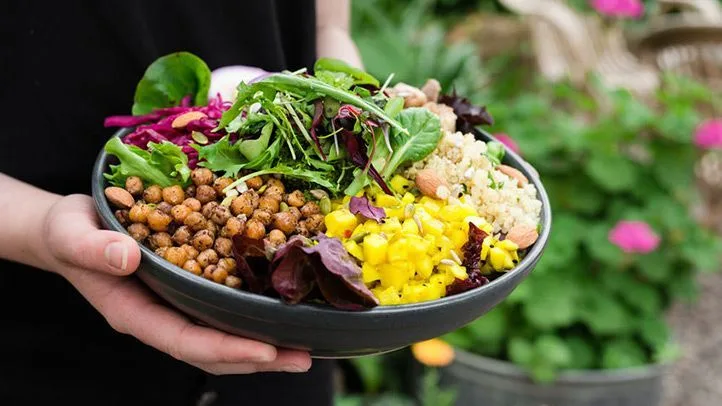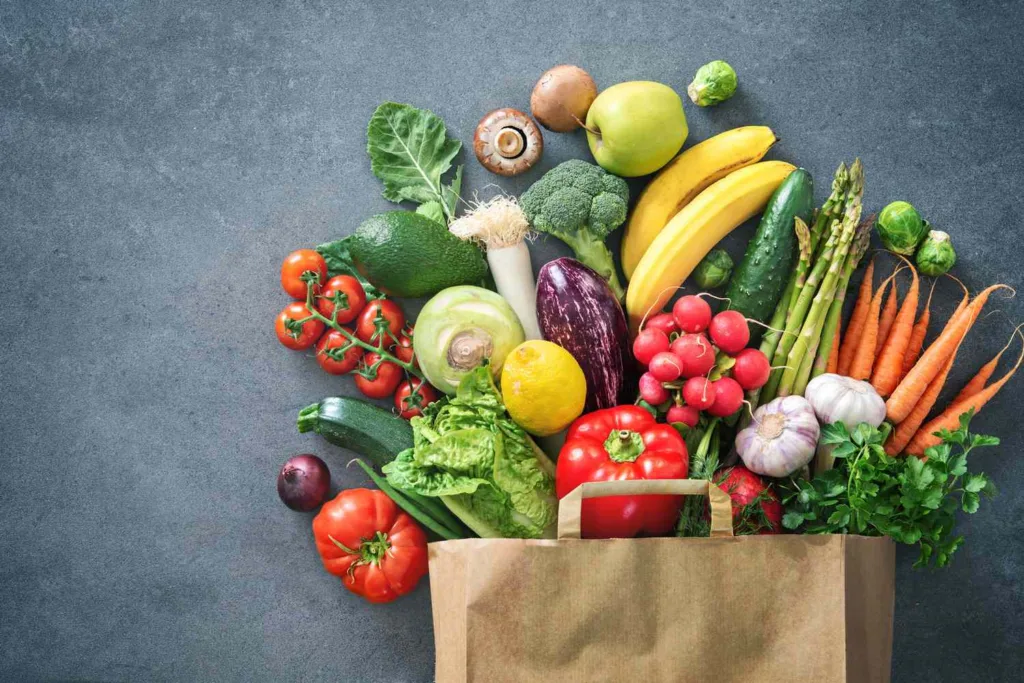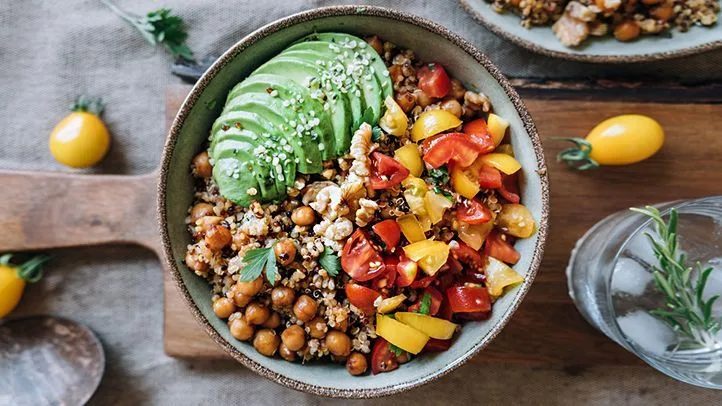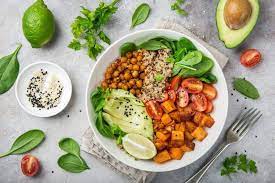Eating a plant-based diet has become increasingly popular in recent years, and for good reason. A diet rich in fruits, vegetables, grains, beans, nuts, and seeds has been shown to reduce the risk of heart disease, diabetes, cancer, and obesity. What’s more, plant-based eating is better for the environment, since it requires fewer natural resources than producing meat, dairy, and eggs. Exploring affordable and nourishing options through diet cookbooks can further enhance your plant-based journey while staying budget-friendly.
However, one obstacle that holds some people back from embracing a plant-based lifestyle is the perception that it is expensive. Fresh produce and meat alternatives can be pricier than processed foods and animal products. Especially for families on a tight budget, the costs of switching to a plant-based diet may seem prohibitive.

That’s where plant-based cookbooks focused on affordability come in handy! With a little education, planning, and creativity in the kitchen, anyone can follow a nourishing, environmentally-conscious diet on a budget. In this post, we will explore the rise of plant-based eating, how to choose an affordable cookbook, give recommendations for great budget-friendly plant-based cookbooks, and provide tips for keeping costs down when cooking plant-based meals at home.
The Rise of Plant-Based Eating
Plant-based diets have become mainstream in recent years, as people aim to improve their health, support ethical farming practices, and reduce environmental impact. According to one survey, over 9 million Americans now identify as vegan or vegetarian. An even larger segment of the population identifies as flexitarian – occasional meat eaters who have ramped up their intake of plant foods.
The growth in plant-based and vegetarian eating can be attributed to a few key factors:
- Increased awareness of health benefits. Study after study has demonstrated the positive impacts of plant-based diets. Vegetarians and vegans have significantly lower rates of heart disease, obesity, diabetes and certain cancers. People aiming to prevent or manage chronic diseases are shifting towards this style of eating.
- Concerns over animal welfare. Animal cruelty and unsanitary factory farming practices have led many people to cut out or reduce consumption of meat, dairy and eggs. The rise of undercover investigation videos exposing abuse at farms has particularly accelerated this trend.
- Worries about environmental impact. The meat industry generates more greenhouse gases than all forms of transportation combined. Animal agriculture also requires massive amounts of land, feed crops, water and energy. Eco-conscious consumers are turning to plant foods to lighten their environmental footprint.
For many households, especially those on limited incomes, making the switch to plant-based eating may seem like a luxury. Some assume they will have to spend far more time and money on exotic ingredients and meat substitutes to prepare satisfying vegetarian meals. However, with the right approach, plant-based cooking at home can be simple, delicious and very budget-friendly.

Choosing the Right Plant-Based Cookbook
To cook nourishing plant-based meals while sticking to a budget, it is key to choose the right cookbook. There are now hundreds of vegetarian and vegan cookbooks on the market, but not all are focused on affordability. Here are some factors to keep in mind when selecting a budget-friendly plant-based cookbook:
Evaluate your dietary needs – Think about your nutritional needs and those of your family. For instance, are you looking to increase protein or iron intake? Do you need recipes that are quick and simple? Are there certain dietary restrictions, like nut allergies, that need accommodation?
Seek out affordable ingredients – Opt for cookbooks that use basic, inexpensive ingredients like beans, lentils, whole grains, seasonal produce and simple spices. Watch out for books calling for a lot of packaged meat alternatives and hard-to-find ingredients.
Include different cuisines – Look for a variety of cultural influences, as this expands the realm of plant foods you prepare. Ethnic cuisines from around the globe offer tasty and affordable meatless dishes.
Focus on batch cooking – Books centered on make-ahead meals, freezer-friendly recipes, and leftover reinventing allow you to maximize your time and grocery dollars.
Consider author expertise – Trust authors with credentials in nutrition and experience cooking on a budget to provide truly satisfying recipes. Dietitians, cooking instructors and thrifty home cooks tend to create excellent budget cookbooks.
Top Affordable Plant-Based Diet Cookbooks
Now let’s explore some of the very best cookbooks available for preparing delicious and affordable meatless meals at home. These books check all the boxes for plant-based eating on a budget.
1. Plant-Based on a Budget by Toni Okamoto
Toni Okamoto is the author behind one of the most popular budget-focused vegan cookbooks. A self-taught home cook living in Hawaii, Toni mastered affordable vegan cooking out of necessity. Her book includes over 100 easy recipes, most taking under 30 minutes to prepare. With an average recipe cost under $2.50 per serving, the ingredients are accessible for any kitchen.
The book is divided into brilliant chapters like “make-ahead meals” and “getting your kids involved.” Family-friendly recipes like lentil sloppy joes, eggplant curry bowls, and tofu nuggets ensure there are options even picky eaters will enjoy. Nutrition info with every recipe allows diet customization. With Plant-Based on a Budget, anyone can create healthy, satisfying vegan food on limited means.
Sample recipes:
- Chickpea Coconut Curry, $1.22 per serving
- Lentil Walnut Tacos, $1.44 per serving
- 20-Minute Black Bean Soup, $0.71 per serving

2. Good Cheap Eats by Jessica Fisher
While not exclusively plant-based, this budget-focused cookbook contains many vegan and vegetarian recipes. Good Cheap Eats emphasizes whole food ingredients tailored to a modest grocery budget. Author Jessica Fisher honed her thrift cooking skills as a professional recipe developer determined to eat well on $40 per week.
The book includes 26 chapters like “Stocking the Pantry” and “Mastering the Plant Kingdom” with creative tips for maximizing every ingredient. Recipes range from lendil and carrot salad to peanut stew, showcasing global flavors. An entire chapter is devoted to $5 weeknight dinner recipes for time-strapped families. With an average price under $4 for two servings, these recipes reimagine economical eats.
Sample recipes:
- Cuban Black Beans, $0.75 per serving
- Broccoli Cheddar Soup, $1.71 per serving
- Lentil Fajitas, $2.24 per serving
3. Eat Well on $4 a Day by Leanne Brown
Developed as an affordable cookbook for low-income Americans, Eat Well on $4 a Day is a masterclass in healthy budget cooking. Created by food justice advocate Leanne Brown, the recipes meet strict cost standards without relying on processed ingredients. With tips for smart shopping, batch cooking, and repurposing leftovers, Brown teaches how to eat nutritiously even during tough economic times.
The book contains breakfasts, soups and stews, salads, lunches, snacks, and meatless main dishes. Each section has recipes representing diverse cuisines from Thai coconut curry to jambalaya. With an average cost per recipe at just $0.71 per serving, the ingredients are truly budget-friendly. This cookbook empowers home cooks to take control of their health.
Sample recipes:
- Lentil and Coconut Curry, $0.62 per serving
- Quinoa Taco Salad, $0.84 per serving
- Three Bean Chili, $0.69 per serving
This selection provides budget-savvy recipes to accommodate all skill levels and dietary needs. From weekly meal planning guides to creative suggestions for stretching expensive ingredients, these cookbooks have all the tools needed for affordable plant-based cooking.

Tips for Budget-Friendly Plant-Based Grocery Shopping
The first step towards savoring economical plant-based meals is strategizing at the grocery store. With some advance planning and insider knowledge, you can keep your shopping basket full while sticking to your budget. Here are some tips for budget-friendly plant-based grocery trips:
Meal plan around sales and coupons – Check store flyers and online deals for what is on sale each week then build your meal plan around those discounted items. Don’t forget to check for digital coupons which can offer additional savings on plant-based staples.
Shop in bulk bins – Purchasing grains, nuts, dried beans and other shelf-stable items from bulk bins can slash costs since you only pay for what you need. Bring your own reusable bags or containers to minimize waste.
Buy produce that is in season – In-season fruits and veggies are always least expensive. Building your meals around spring asparagus or winter squash means savings. Farmers markets are great for deals on fresh seasonal produce.
Look for unfamiliar veggies – Branch out beyond grocery store staples to discover more exotic vegetables at a good value. Purchasing bok choy, mustard greens, dandelion greens, etc. exposes you to new flavors.
Select store brand options – Opt for generic or store brand versions of plant milks, mock meats, pasta, sauces, and other products you routinely buy. Taste and quality have vastly improved while these products cost much less.
Buy frozen produce – In some cases, frozen fruits and veggies cost less than fresh while still providing good nutritional value. They also last much longer and can help reduce waste.
With a mix of planning, price comparing, and substituting generic brands, you can keep your plant-based grocery costs low. Use these tips to shop smart.
Cooking Plant-Based Meals on a Budget
Once you’ve filled your pantry and fridge using budget-savvy shopping tips, it’s time to start cooking! With a bit of creativity in the kitchen, you can prepare inexpensive plant-based meals that never feel repetitive. Here are some pointers for cooking meatless meals that won’t break the bank:
Embrace batch cooking – Many plant-based ingredients can be prepared in large batches then incorporated into meals throughout the week. Cook once, eat multiple times – it’s a great way to save time and money. Soups, grains, beans, sauces, etc. all keep well for meal prep.
Master the art of leftovers – Leftover ingredients often get wasted, but they present an opportunity for new meals on a budget. For example, extra lentils can become veggie burgers, surplus roasted veggies transform into pizza toppings, etc.
Substitute pricy ingredients – With just a few tweaks, recipes calling for expensive vegan specialty products can be made affordable. Beans, sweet potatoes and cauliflower creatively sub in for pricier packaged vegan meats and cheeses.
Reduce food waste – About 30% of all food purchased ends up in the landfill, which is money straight down the drain. Proper food storage, planning leftovers into future meals, and composting scraps helps cut this waste.
Buy in-season produce on sale – Buying discounted seasonal fruits and veggies mentioned earlier, then working those items into versatile recipes allows you to eat well without overspending.
With a bit of creativity and restraint, plant-based home cooks can prepare satiating meals while adhering to a modest budget. Once you get the basics down, you will be shocked at how satisfying eating vegan on a budget can be!

Success Stories and Testimonials
Incorporating more plant-based meals is rewarding both for your health and wallet. Just ask the countless people who have successfully switched to budget-friendly vegetarian eating and seen amazing results! Here are some of their inspiring success stories:
Sarah H. from St.Louis, MO
“As a busy single mom, I was struggling to put healthy meals on the table each night while staying on a tight budget. I couldn’t afford fancy ingredients or meat substitutes. Then I discovered bean burgers, lentil loaf, roasted veggie bowls and other easy plant-based recipes. Now I cook simple, affordable meals that satisfy my family and give us more energy. My grocery spending has gone down and my kids are actually eating their vegetables!”
James T. from Portland, OR
“Going vegan seemed unrealistic for my small food budget. But with a little planning, I found I could make delicious plant-based meals for the same cost as my old meat-heavy diet. I batch cook rice, beans and roasted veggies on Sundays, then use them all week long in bowls, wraps, salads and burritos. My grocery bill is lower, I’ve lost 20 pounds, and I don’t miss meat one bit!”
Grace R. from Milwaukee, WI
“As retirees on a fixed income, eating healthy plant-based meals seemed out of reach. We joined a community-supported agriculture program and started buying bulk beans and grains to lower costs. Now we cook big pots of vegetable chili, lentil soup and chickpea curry each week for lunches and dinners. I cannot believe how much money we’ve saved while improving our diet beyond what we thought possible.”
These real-life examples demonstrate that plant-based eating can be affordable and accessible to all types of budget-conscious households, from busy families to seniors and singles. With a bit of education and effort, you too can succeed in implementing meatless meals that nourish your body while staying within your grocery budget. Don’t let stereotypes about cost dissuade you from trying a veggie-focused lifestyle.
Conclusion
Eating a diet centered on affordable plant-based whole foods is beneficial for both your health and wallet. With the rising popularity of vegetarian and vegan diets, cookbooks tailored specifically to thrifty budgets have exploded onto the scene. These empower home cooks to create nourishing meatless meals at a modest cost.
Choosing recipes that use basic ingredients like beans, lentils, and seasonal produce can drastically cut meal costs. With proper planning, shopping, and batch cooking techniques, nutritious plant-based cooking is possible even on a tight budget. The personalized recipes and money-saving pointers within these cookbooks provide roadmaps for success.
If living a greener life and improving your wellbeing appeals to you, don’t let perceived affordability challenges prevent you from trying more plant-based eating. Give one of these budget-friendly vegan cookbooks a shot. Before you know it, you will discover how to eat foods that are both plant-based and wallet-friendly!
Want to support our mission promoting plant-based eating, nutrition and wellness? Subscribe to our newsletter below for plant-based recipes, meal planning guides, cooking tips and so much more.
Thank you for reading this post, don't forget to subscribe to our free newsletter
!
